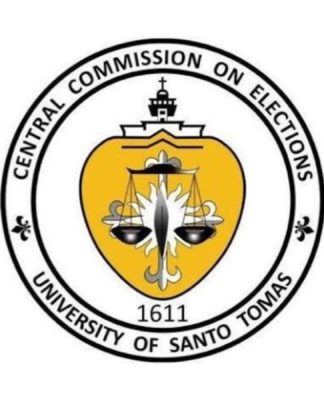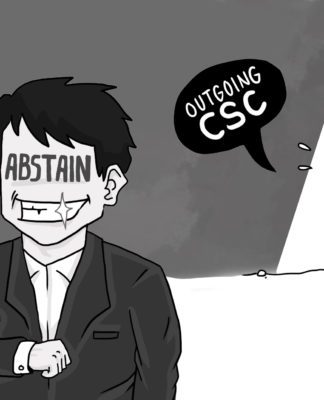THE number of UST professors with master’s degrees has risen in the past three years, but the number of doctorate degree holders has not improved, official statistics showed.
A total of 1,085 faculty members had master’s degrees as of the second semester of academic year 2012-2013, up from 964 in 2010, data from the Office of Faculty Evaluation and Development (OFED) showed.
The Faculty of Engineering had the highest number of master’s degree holders with 128, followed by the College of Nursing with 93, and the Faculty of Arts and Letters with 78.
A total of 311 faculty members have yet to obtain their master’s degrees, OFED Director Editha Fernandez told the Varsitarian.
The Commission on Higher Education (CHEd) requires all faculty members to have master’s degrees under Section 35 of Memorandum Order 40 series of 2008, also known as the Manual of Regulations for Private Higher Education (Morphe).
UST began to strictly enforce the CHEd order in 2003, when it stipulated in the collective bargaining agreement with the faculty union that a faculty member without a master’s degree could not be tenured.
Meanwhile, the number of Ph.D. holders dropped to 465 in the second semester from 481 in the same period in academic year 2010-2011. This year, it went up by a percent to 472.
The Faculty of Medicine and Surgery had the most number of professors with doctorate degrees at 242, followed by the UST Graduate School with 59 and Science with 39.
Clarita Carillo, assistant to the rector for academic affairs, said in an e-mail to the Varsitarian that this was due to faculty members who “come and go.”
“The number of Ph.D. holders appears to be [almost] the same because while there are faculty members who complete their doctoral degrees every year. A number of our faculty members also retire each year,” she said.
Seven to eight faculty members finished their doctoral degrees each year in the last four years. But an average of 25 faculty members opted for voluntary retirement or had reached the mandatory retirement age, Carillo said.
Pursuing a doctoral degree is not an easy task, as it requires “sacrifice, strong will, and determination,” she said.
There are incentives, Carillo pointed out.
“The University extends grants to tenured faculty members when they enroll in the graduate school, whether in UST or other reputable institutions,” she said. “That means their academic units are free or paid for by the University.”
A faculty member who decides to pursue a doctoral degree is granted a study leave of one year as long as he or she has an approved dissertation proposal. The oral defense fee is also waived, Carillo said.
Financial assistance of up to P30,000 is extended to cover expenses in dissertation writing, while full study grants with pay are awarded to those who can get scholarships from external funding agencies and wish to pursue their Ph.D.’s abroad, Carillo added.
“Given all this support, there is no reason not to have a Ph.D. nowadays except the lack of commitment to it,” Carillo said.
Carillo is hopeful that young faculty members with master’s degrees will “aggressively pursue their doctoral degrees.”


















